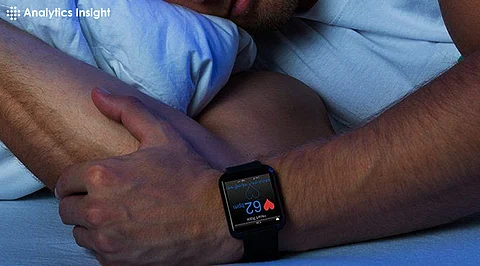

Technology is improving every day. Now, artificial intelligence (AI) is helping people sleep better. AI-powered sleep trackers give useful information about sleep patterns. They also provide real-time feedback and personal sleep advice. In 2025, these devices are smarter than ever. Here are the best AI sleep trackers available this year.
The Oura Ring is a small and smart sleep tracker. It looks like a regular ring but has powerful AI inside.
Sleep Coaching: AI studies sleep patterns and gives helpful tips.
Stress & Readiness Scores: Tracks body temperature and heart rate to check sleep health.
Comfortable to Wear: It is small, light, and water-resistant.
Apple’s smartwatch is great for tracking sleep. It uses AI to improve sleep quality.
Sleep Apnea Detection: AI looks for signs of sleep apnea and warns the user.
Smart Wake Feature: Wakes the user at the best time in their sleep cycle.
Deep Learning Insights: AI studies long-term sleep data and suggests improvements.
This device stays under the mattress. It tracks sleep without touching the body.
Non-Wearable Tracking: No need to wear anything.
AI-Powered Sleep Coaching: Gives reports and tips to improve sleep.
Snore & Breathing Analysis: Detects sleep disorders like snoring and breathing problems.
Fitbit Sense 3 is a smart fitness watch. It also tracks sleep with AI.
AI Sleep Score: Uses heart rate and movement to measure sleep quality.
Smart Alarm: Wakes users at the perfect time.
Stress & Recovery Insights: AI connects sleep data with daily activities.
Google Nest Hub 2 tracks sleep without any physical contact.
Radar-Based Monitoring: AI tracks sleep using sensors.
AI Sleep Reports: Summarizes sleep patterns and gives tips.
Google Assistant Support: Users can ask Google for sleep advice.
Whoop 5.0 is mainly for athletes, but anyone can use it.
AI Sleep Performance: AI tells users how much rest they need.\
24/7 Heart Monitoring: Tracks heart rate and sleep consistency.
Adaptive Sleep Coaching: AI adjusts sleep goals based on habits.
AI sleep trackers will improve even more in the future. Here’s what to expect:
Predictive Sleep Health: AI may detect sleep disorders early.
Smart Home Connection: Sleep trackers may control room temperature, lighting, and sound.
Real-Time Coaching: AI may provide instant sleep tips.
People’s choices depend on their individual requirements and sleep trackers are no exception. Wearable trackers like the Oura Ring Gen 4 are great for those who like comfort. Non-wearable devices like Google Nest Hub 2 work well for others. Thanks to AI, sleep tracking is now more advanced. These devices help people sleep better and stay healthier in 2025.
